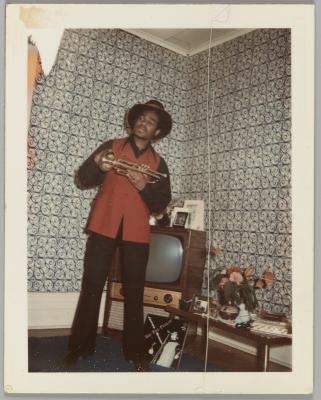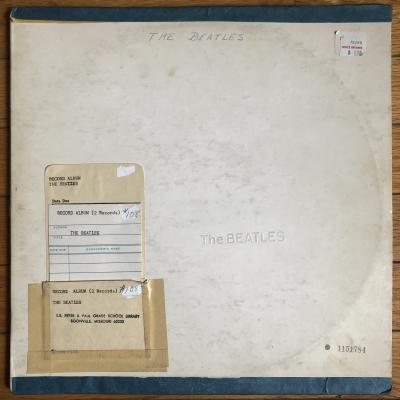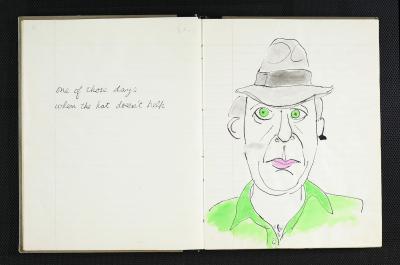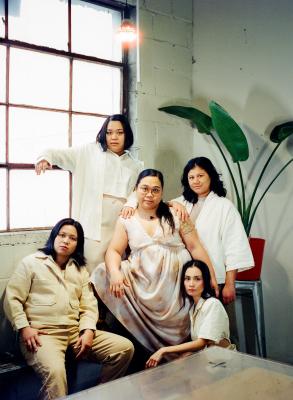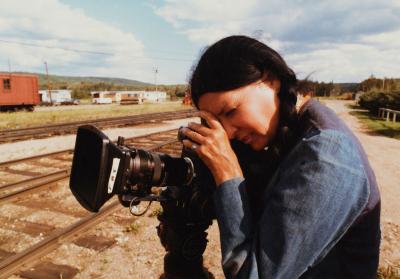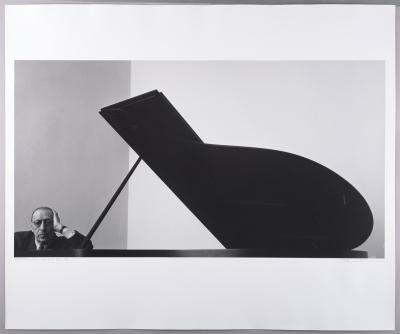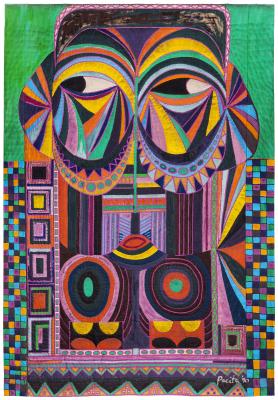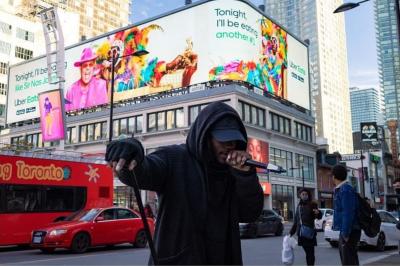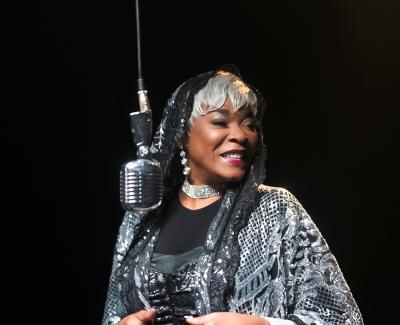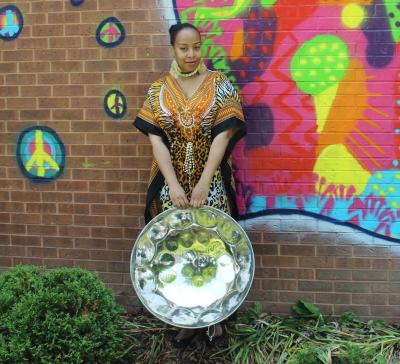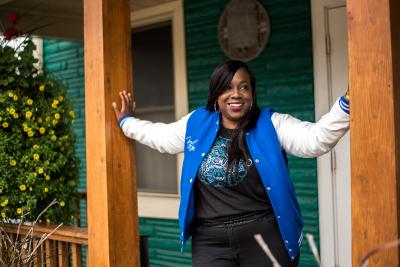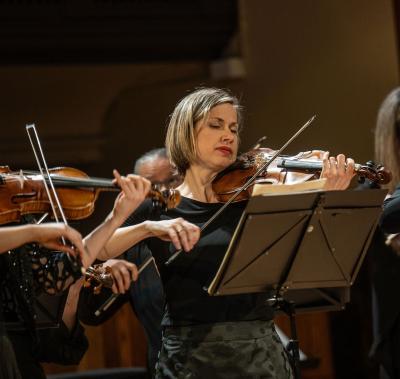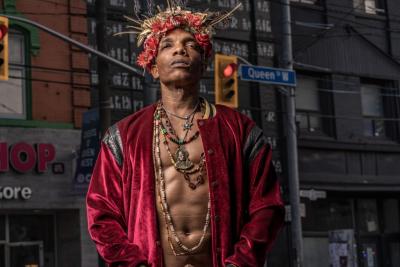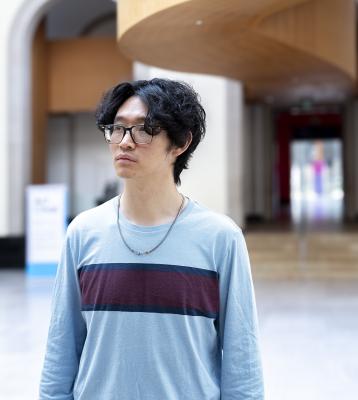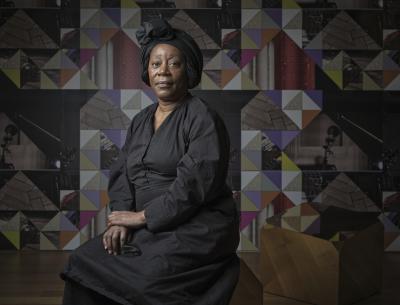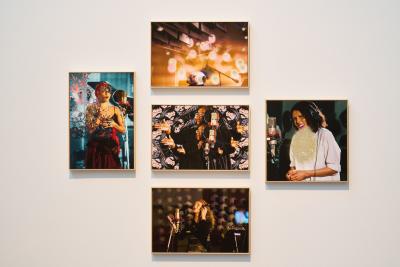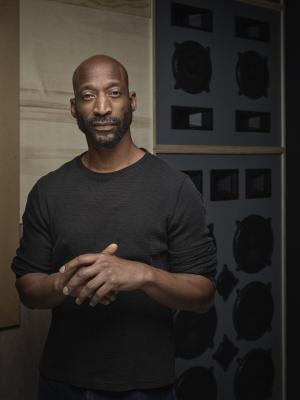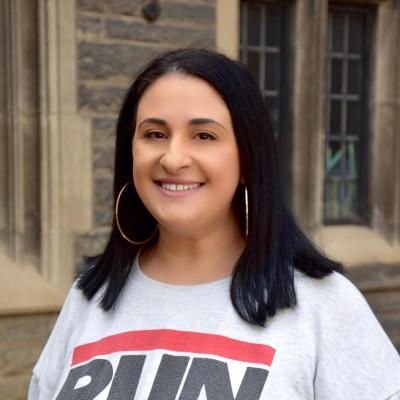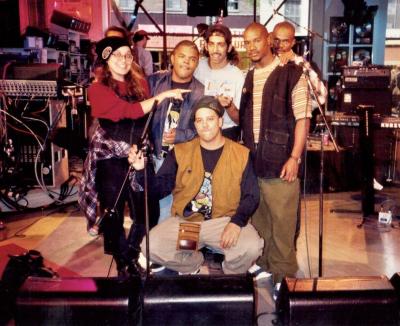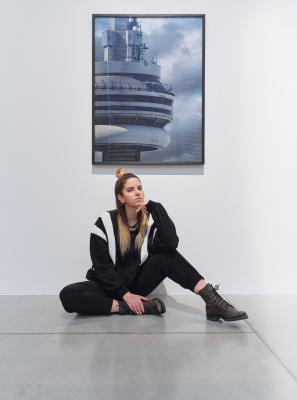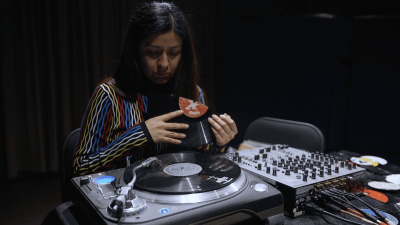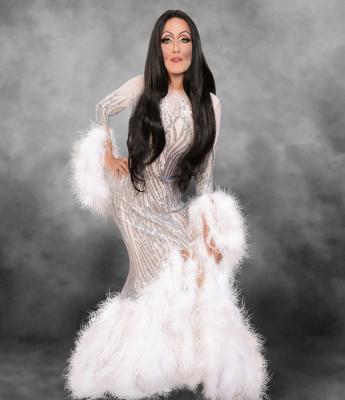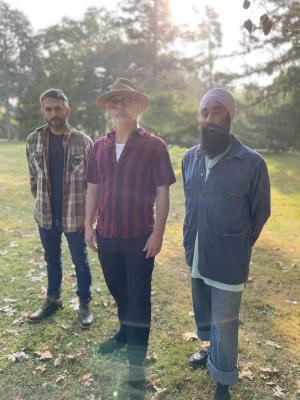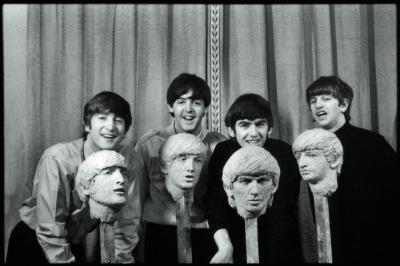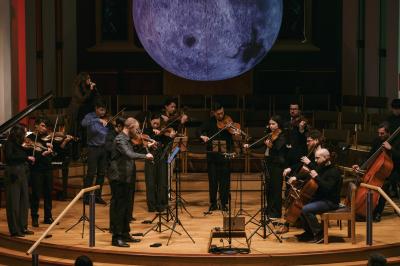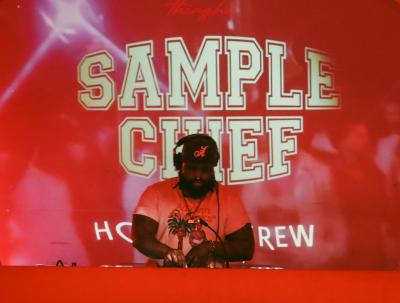A Q&A with Molly Johnson
The award-winning jazz vocalist performs at the AGO on February 10, 2023.

Molly Johnson. Photo courtesy of Chris Nicholls Photography.
“Anytime I step into the AGO, I'm inspired. How could you not be in a space full of creative works? It’s always, always inspiring.”
Even before she arrived on the Canadian music scene in the 1980s, Molly Johnson, OC was always on the move. With a voice unlike many others and her signature wit, the chanteuse has wowed audiences across Canada, the US and around the globe for decades. A true multi-hyphenate born in Toronto, she is a singer, songwriter, artist, philanthropist and mother. And for one night only this February 10, she’s bringing her musical talents to the AGO’s Walker Court for a performance celebrating Black History Month and the landmark AGO exhibition Denyse Thomasos: just beyond.
We spoke with the Order of Canada recipient and Juno Award winner over the phone a few days before her highly anticipated performance.

Molly Johnson. Photo courtesy of Chris Nicholls Photography.
The following interview has been edited for length.
Foyer: We’re so looking forward to your performance at the AGO this Friday. How are you feeling about it? Does the idea of performing in an art museum bring up anything for you?
Johnson: Walker Court has nothing but hard, flat surfaces. It takes work to make sounds in there. However, I've performed there several times over the years, so it's not impossible. I love the AGO, and I’m a member too.
I’ve got my crackerjack band; they're just awesome. We've been playing together as a quartet for 25 years, so all the jokes are very well-developed. What I hope to do is spend a couple of hours wandering the Gallery after the sound check, before the show. That's my plan, to see the works on view and get inspired that way. You know, I'm not always in creator mode. Sometimes I like witnessing other artists do their thing. And I just enjoy it.
I've been going to the AGO since I was a little kid. My mom was a member of the AGO and used to rent paintings. We didn't have much money, but we always had art on the walls. She genuinely loved art, and we all grew up with it. We had friends growing up that were painters. And when my son, my oldest son, turned 16, I bought him his membership to AGO. That was one of the smartest parenting decisions I ever made. Because it gave him not only a great place to, say, take a date when he was 16 or 17 years old, but it led to when he went to the University of Ottawa, his favourite place to study was the National Gallery of Canada. When I visited him, he would show me which paintings he liked to sit in front of while he was studying. Nowadays, wherever he travels, it's quite natural for him to want to check out an art gallery. All that came from thinking, what do I get a 16-year-old for his birthday? Look where it went. I think that’s an impactful story for families to hear. That the love of art is long-reaching.
Foyer: The performance is in joint celebration of Black History Month. The meaning and significance behind Black History Month have evolved over the years. What does it mean to you?
Johnson: Well, as a young punk, I used to be kind of annoyed with it. Because February has terrible weather and the month is very short. And it seemed to suggest that people were just Black for the month, and then that was it. So I was always a little annoyed by it. I mentioned that once to my white activist mother. I told her, “Hey, Mom, this is a crappy month.” And I whined and complained as a young woman does to their mother. It's kind of what we do. She looked at me at one point and said, “You know, how long it took to get that month?” And that’s when I got it.
Since then, I have always tried to use Black History Month as a launching pad because all eyeballs are on it. I use it as a way to launch programs and progress – I’m interested in beyond just the month.
AGOinsider: Going back to your 2018 album Meaning To Tell Ya. The album opens with your take on Marvin Gaye’s classic track Inner City Blues. What appealed to you about making the song your own? What relevance might the song have today?
Johnson: Well, I’ll answer the last part first. [The song is] exactly what’s happening today. Listen to the lyrics, “Bills pile up sky high, we're constantly sending our boys off to die.” That hasn’t stopped; we haven’t stopped doing that. Lyrics like “I can’t pay my taxes.” Sadly, a lyric like that from 1973 stands the test of time in 2023. It is very relevant; it’s a sad take on where we're at. I didn’t choose that song. The great Larry Klein [who produced the album] did. He’s produced music for people like Norah Jones and was married to Joni Mitchell for 17 years. You name them, he's produced them.
When I saw the song on the board, as in he had a whole bunch of songs for me to choose from, I said, “Marvin Gaye? Good lord, I can't cover Marvin Gaye.” And he said, “Well, you just made a Billie Holiday record [Because of Billie, 2014]. You covered her. She was fine as can be.” And I went, “Yeah, he's right. I did do that. I could do this.” And I did. It is the song that, out of all the songs on that record, is the most consistent one we play live. We'll be doing it at the AGO. We love to perform it. I love that song. It's great. It's timeless. And that's a sad, unfortunately sad, commentary on where we're at.
My roots are in Black America, so I have a different take on being Black in Canada. My parents were deeply involved in the Civil Rights Movement from the late ‘40s until their death. So I was surrounded by activism and civil rights my whole life growing up. It did have impact on the way I wrote songs and the kind of music I chose to perform. Absolutely.
Foyer: Musically, what’s inspiring you these days?
Johnson: I'm a news junkie. I always have been. I read loads of newspapers and get them delivered right to my door like an old lady because I am one, right? I like to stay connected to all of that. But the really big piece around how I get songs through me is I'm an eavesdropper. I listen to people on streetcars. I talk to strangers all the time, even if it's just a hello on the street. My inspiration comes from what's happening in the world and what people say about it. Because really, artists reflect, not deflect -- we reflect. In my view, anyhow, I'm writing songs about you. That's a big one for me. Everybody needs to see themselves in a song. I'm not so interested in me; I’m interested in you.

Molly Johnson. Photo courtesy of Chris Nicholls Photography.
Foyer: That reminds me that everyone needs to see themselves represented at an art museum like the AGO.
Johnson: Yes, and I think Julie Crooks [AGO Curator, Arts of Global Africa and the Diaspora] has done an excellent job of that at the AGO. It's just about stepping into the room. Stepping into the ring and bringing people behind you many, many times. It's very important. Somebody's got to step in.
My dad, my Black American father, was a major “stepper inner,” in the ‘50s, in Toronto, before the [Caribbean] onslaught, as I like to call it. Toronto was a very white town, and I don't mean that in a derogatory way. That's just the way it was. It wasn't until more immigrants came in that things changed. My city changed colour in my lifetime. It’s been quite a mesmerizing journey to watch.
Foyer: How do you see Toronto now, especially as you continue to be a part of the fabric of the city?
Johnson: There's a reason why Toronto is so darn expensive. And part of that is because it's a fantastic city. People want to live and work here because we've got a whole bunch of it right. One of the things we have right in this city is multiculturalism. I cannot tell you how many cities I've been in around the world where cultures get compartmentalized. I mean, we do have a bit of that, with Chinatown, Little Portugal, etc., but the reality is that Torontonians eat each other's food. And they go to each other's festivals. And they dance to each other's music. And it's completely normal. That’s the beauty of Toronto. I’m not saying it's perfect because how boring would that be? It’s an absolute work in progress, but what a lovely one.
Foyer: What’s on the horizon for you in 2023 and beyond? Any plans for your next album?
Johnson: Well, I’ve been awarded the Ordre des Arts et des Lettres from France, so we're heading to Paris and Luxembourg for some shows. And then, I am back in Canada to dig into my beloved Kensington Market Jazz Festival. The little jazz festival that could! I'm getting calls from around the world from jazz musicians wanting to play in Kensington. I don't think they realize what it’s all about because most of our venues are in the bagel shop or a parking lot. It's the reputation of our festival that counts. Nobody makes any good money at it, either. It’s not about that. Artists play, and then they work for the door. That's the whole beauty of it. It’s jazz with a small J. It's really good musicians playing their instruments. I love what it does to my troubled neighbourhood, Kensington, which needs all the love and support and protection that we can give it.
I'm sure there will be other shows when we come back from France in the spring and summer.
It's looking like I'm going to play with the TSO in December. I have no plans at this moment to make another record, but that door is always open. I have such a wonderful relationship with Universal Music. It's taken me 40 years to be able to say that about the record business, but I've actually survived it. So, I kind of can do whatever I want.

